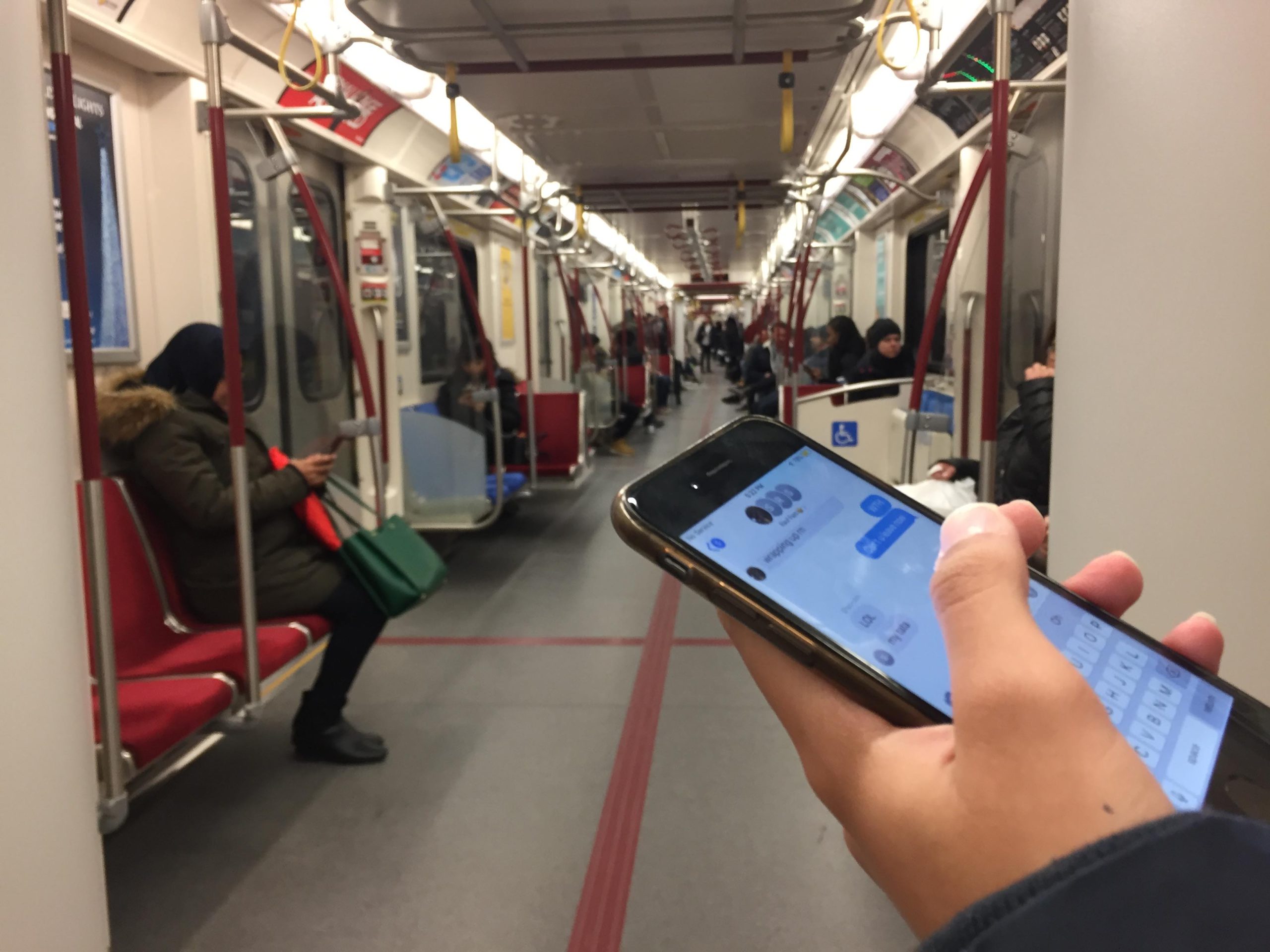Shahroze Rauf | News Editor
Featured Image: In a study conducted by BAI Communications, more than 80 per cent of respondents said “underground mobile connectivity is a sign of a world-class city.” | Courtesy of Shahroze Rauf
Cell phone service is technically available underground in the subway system via a neutral network. However, major telecommunications companies do not allow their users access to this network. This is why anyone who isn’t with Freedom Mobile will lose service as soon as they go down into the subway and travel through the tunnels.
The company that runs this blocked network is BAI Communications. In late September, they launched a campaign to inform Toronto commuters that service providers, other than Freedom Mobile, do not allow their service users access to the underground and tunnel network within the TTC.
BAI Communications design communications infrastructures, like cellular networks, Wi-Fi, broadcast and radio, and IP. They are funded by the Canada Pension Plan Investment Board; they have established a service network in the TTC and have set up TTC’s Wi-Fi network TCONNECT.
“All 75 subway stations and platforms, all mezzanines and walkways, and all passageways and stairs are cellular, and Wi-Fi enabled. Continuous cellular coverage in the tunnels is available in the lower U as well as on the Line 1 extension from Sheppard West to Vaughan Metropolitan Centre,” BAI Communications said in a media package.
Within large cities, such as New York and Hong Kong, BAI Communications run underground neutral networks in the subway. This allows service providers to give their users cell phone service even if they’re going through a tunnel.
But for some reason major service providers are not signing with BAI Communications for underground service.
CBC reported that Bell released a statement saying they wish to build their own network within the subway system, but “have been denied access to do so.” CBC also reported that a spokesperson for Rogers said the company wishes to expand service, but prefers partnering with others to set up their own network within the subway.
Aside from no service being a problem in and of itself, some students report feeling unsafe. Fourth-year linguistics student at York, Zhyra Sanchez, believes the lack of service is frankly unfair, especially when considering safety.
“If something happens in the subway, we should at least have some way to communicate with our families and friends to let them know we’re okay. Especially while inside the train — accidents can happen anytime, anywhere. What does Freedom Mobile have that other providers do not?”
Mayor John Tory also told Excalibur that he is working on a way to find a resolution to this problem, sympathizing with frustrated transit goers and their immediate need for service underground.
“I’ve delivered that message to all parties involved because I know this is something available in many underground transit systems around the world and will make a difference, for the better, in transit riders’ lives. I will be increasing my efforts in the weeks ahead as the time is long since past where this should be resolved in whatever manner the parties see fit but resolved nonetheless.”
In a study by BAI Communications, 93 per cent of Canadian survey-takers said that the ability to talk, text, and use LTE data on the TTC makes their commute productive, safe, and allows them to maintain contact with friends and family. The same number of respondents “believed that all rail networks should offer digital connectivity,” as reported by the study.
But it is still too early to know if these numbers will make any changes to the current situation. For now, BAI Communications’ campaign ‘IWantAccess’ is underway and continues to attract attention from transit takers in Toronto.


